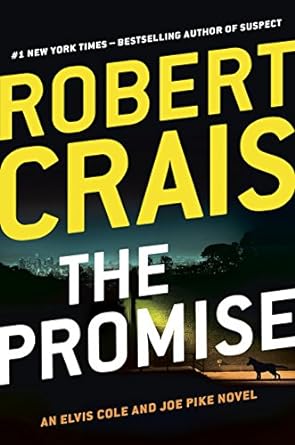Noah Smith saith: I owe the libertarians an apology. You can click through to read his continuing problems with libertarian ideology; being only about 68% libertarian these days, I see his point about (say) foreign policies.
So let's get down to his apology:
The most obvious thing that has prompted me to make this apology is Donald Trump’s disastrous tariff policy. While some progressive politicians like Bernie Sanders, Gretchen Whitmer, and Chris Deluzio have equivocated on tariffs — criticizing the implementation but not the basic idea — it has been the libertarian Rand Paul who has come out as one of the tariffs’ strongest rhetorical opponents in Congress:
Many Republican lawmakers lie low when they have differences with President Trump. Sen. Rand Paul has taken the opposite approach.
“Congress needs to grow a spine, and Congress needs to stand up for its prerogatives,” the Kentucky Republican told reporters…His comments came just days after he was one of only two GOP senators to vote against the party’s budget framework that is key to Trump’s tax cuts, saying it didn’t do enough to reduce the deficit…
[N]ow major parts of Trump’s agenda could hinge on whether the senator sticks to his guns or folds…The conflict over tariffs could come to a head soon. A measure Paul is co-sponsoring to end Trump’s tariffs is set to come to the floor when the Senate returns next week.
The spectacle of a libertarian Republican standing up to a President who holds near-absolute power within the GOP is inspiring, while it’s shameful to see some Democrats take only weak swipes at policies that threaten to do great harm to America’s middle class and working class.
Unfortunately, Senator Paul's "grow a spine" resolution to terminate the "emergency" under which Trump claims authority to set tariffs failed to get a majority in the Senate yesterday. And even if it had prevailed there, its prospects in the House were dismal. And Trump promised a veto in any case.
Also of note:
-
And why would you expect otherwise? Jonah Goldberg points out: There’s Nothing Conservative About Donald Trump’s Trade Philosophy.
In an interview with Time magazine, President Donald Trump explained how he approaches tariffs and trade negotiations. I use the word “explained” with some trepidation, because explanations imply a certain delineation of reasoning, facts, and logic along with opinion and perspective. If you ask me to explain my support for abolishing rent control and I respond, “Because vests have no sleeves and turtles smell of elderberries,” have I really offered an explanation? Or have I merely revealed what passes for my thinking?
“We’re a department store, a giant department store, the biggest department store in history,” Trump “explained” at great length. “Everybody wants to come in and take from us. They’re going to come in and they’re going to pay a price for taking our treasure, for taking our jobs, for doing all of these things.”
“I own the store, and I set prices,” Trump says. He will set those prices based on “statistics” and whatever else he—and he alone—deems relevant.
Now, suffice it to say, department stores don’t work like that, America is nothing like a department store, and the president is in no way the owner of America or its economy. Countries trading with America don’t “take” our treasure. They sell us things that millions of consumers and businesses need or want. Trump believes that because we buy more foreign goods (he ignores our trade surplus in services) than foreigners buy from us—i.e. trade deficits—is proof we’re being “ripped off.” If that were true, every time you handed over your money for a coffee or a car, you’d be robbed. But you’ve heard these arguments before.
Yes, he really did say "I own the store."
-
They should have put Bizarro Superman in one of the movies. But we'll have to settle for an unfortunate real-world example, according to Robert Corn-Revere: Brendan Carr’s Bizarro World FCC.
Carr, who has been an FCC commissioner since 2017, used to say things that reflected an understanding that the government’s authority to regulate the media is sharply constrained by the First Amendment. When Democratic congressmen tried to exert political pressure on broadcasters over their coverage of COVID-19 and the 2020 election, for example, Carr called it “a chilling transgression of the free speech rights that every media outlet in this country enjoys,” adding in no uncertain terms, “a newsroom’s decision about what stories to cover and how to frame them should be beyond the reach of any government official.” Or when members of Congress urged the FCC to reject a Miami radio station transfer based on the political viewpoints of the proposed new owner, Carr rebuffed this effort “to inject partisan politics into our licensing process,” correctly calling it “a deeply troubling transgression of free speech and the FCC’s status as an independent agency.”
Less than a year ago Carr proclaimed the United States does not need “the FCC to operate as the nation’s speech police,” adding, “if there ever were a time for a federal agency to show restraint when it comes to the regulation of political speech and to ensure that it is operating within the statutorily defined bounds of its authority, now would be that time.” Back then, Carr wore an American flag lapel pin, suggesting a commitment to the Constitution he swore to uphold. He’s since traded that for a Donald Trump lapel pin that looks like a prize fished out of a cereal box, and it suggests an allegiance to … something else.
Unacquainted with Bizarro Superman? Wikipedia has you covered. (I was there at the creation, seven-year-old me buying Superboy No. 68. (Which cost me 10¢, and … whoa, look at what a copy would cost you today.)
| Recently on the book blog: |

![[The Blogger]](/ps/images/barred.jpg)



